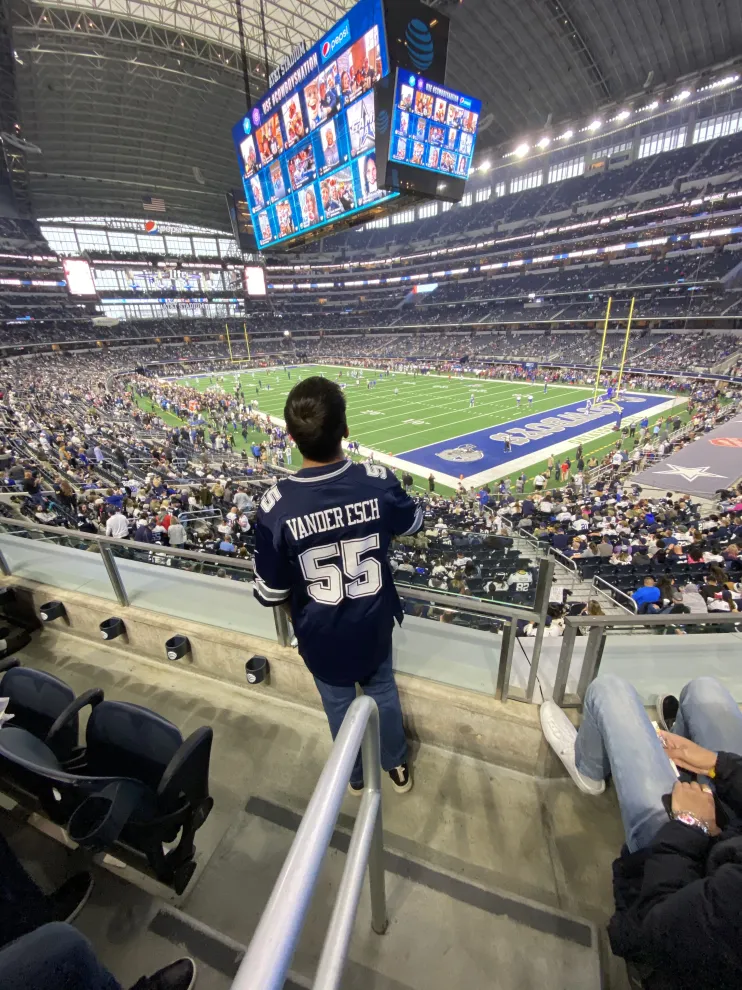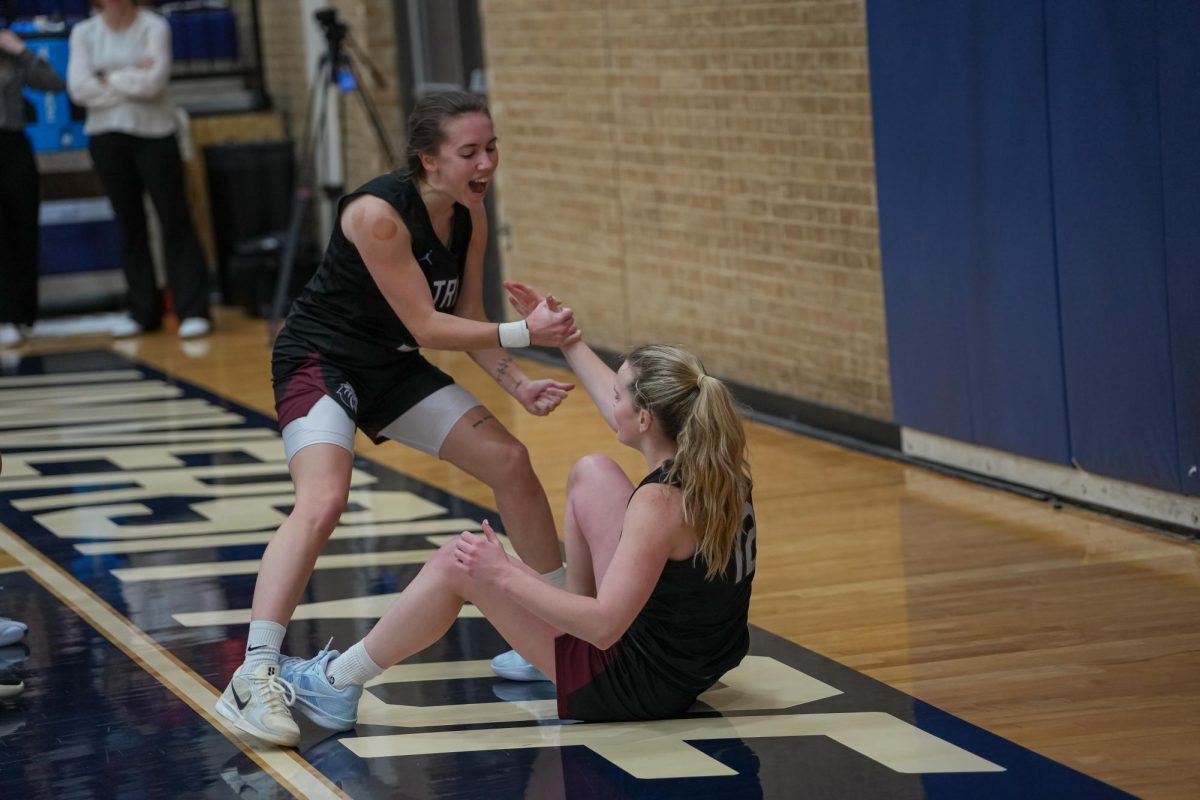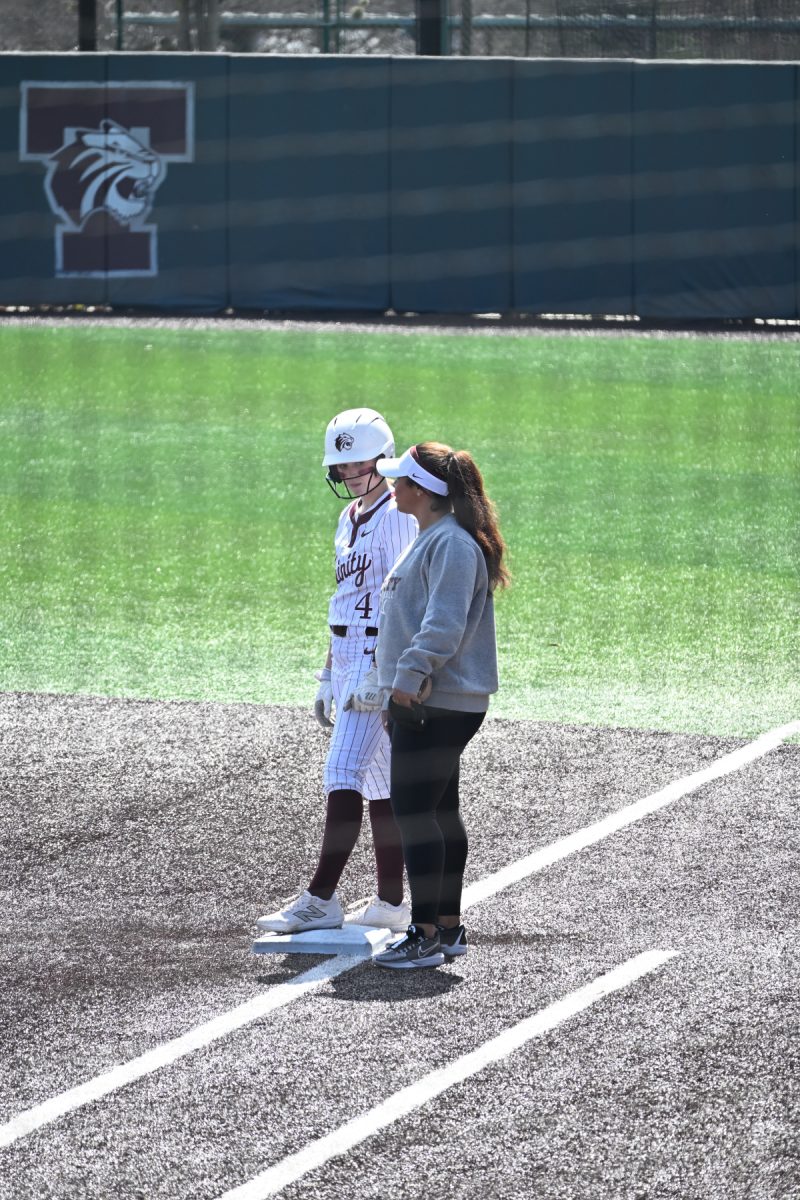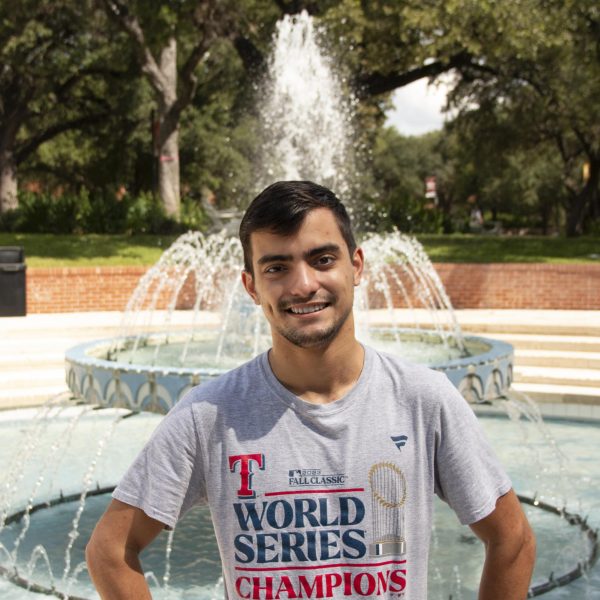I know, I know, this is a super controversial take from the Sports Editor, but bear with me. I love watching sports at any level — from the brightest lights of a world championship to the smallest pickup games on street corners in small towns.. I’ve been fortunate enough to attend numerous sporting events, from my first Rangers-Astros game when I was just five years old to my most recent Rangers-Astros game when I was 21. I’ve had one NASCAR race, one Dallas Stars NHL game, two Thanksgiving Dallas Cowboys NFL games and four Texas Rangers MLB games. Overall, it’s a very extensive list of events that should disqualify me from ever making a statement on Houston sports again due to my incredible bias.
The first thing that comes to mind when I think about sports isn’t the deep passes, the flashy moves or the long home runs. Instead, when I remember these events, I remember the connection between the fans. Concerts and movies are amazing, but hearing the unified roar of thousands upon thousands of people is an entirely different sensation.
I’m drawn to the communities that have developed between these fans — not just in Dallas or San Antonio, but around the world. You see it with English soccer fans pulling out the most hilarious chants for a Tier 2 match on a Tuesday afternoon in Coventry. It’s seen with Buffalo Bills fans jumping through tables in negative temperatures. You can even feel it in the deep-seated hatred between the Longhorns and Aggies. No matter where you look, there’s a special bond between sports fans you can’t find anywhere else. The love, the rivalries, the memories and the matches all come together for fans to create a beautiful tapestry of humanity unique to each team and sport.
I can’t ignore the way sports can connect people. In December, I traveled to Colorado to finally meet with long-time friends I had made over social media from various football and sports servers. Despite never meeting in person or seeing what each other looked like before that moment, we almost instantly connected — laughing and cracking jokes and conversing about players, moments and each other. As the joke goes, “One of the best ways to keep a sports fan occupied is to ask them to name a random athlete.” There’s nothing like reminiscing about Jeff Heath’s hard hits and trying to convince Denver Broncos, Buffalo Bills and Pittsburgh Steelers fans that he was underrated.
Besides personal memories, incredible traditions are infused into teams, fans and events. At Indianapolis Motor Speedway, the race winner drinks milk and kisses a three-foot-wide strip of bricks from the circuit’s original 1909 surfacing. At Penn State, the football team’s annual white-out night fills the stadium and creates an atmosphere so loud that opposing teams sometimes can’t hear the signal to snap the ball. At the University of Texas at Austin (UT), the bell tower at the center of campus is lit up in orange following any UT win and the school song is played every night at 9:00. Teams even have memorabilia bathed in tradition, such as the “Terrible Towel” of the Pittsburgh Steelers, which is not only a rallying symbol for the fans but also helps donate to local charity. It all combines to create years worth of history and passion for fanbases.
Sports are about so much more than the strategy and the nuance of technique. Sports are about connecting with strangers an ocean apart over a moment in history. They’re about helping new fans learn what various terminology means so they can love the game. They’re about being sad at player retirements, getting passionate about devastating losses and crying for joy when your team finally wins it all — whether it’s the first in franchise history or one of many in a dynasty. In many ways, sports can be compared to epic stories of history because of the passion, drama, betrayal and hope.
You don’t need to eat, sleep and breathe the X’s and O’s of strategy to understand that sports can make the best stories in the world. All you have to do is watch.






